Future of wild camping on Dartmoor under threat
A wealthy landlord has launched a legal bid to remove the right to camp out on Dartmoor, an experience long treasured by youth groups and outdoor enthusiasts

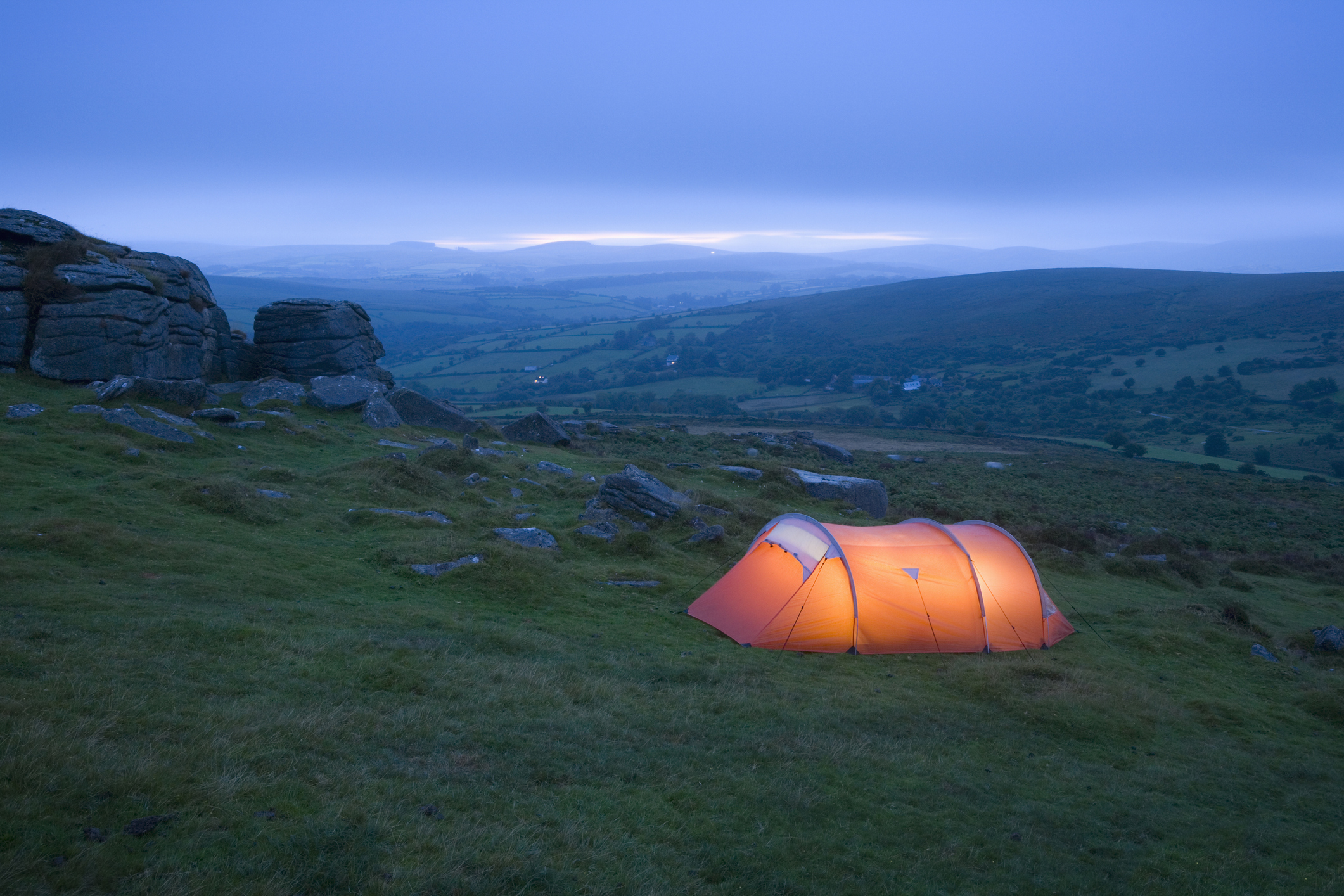
Get all the latest news, reviews, deals and buying guides on gorgeous tech, home and active products from the T3 experts
You are now subscribed
Your newsletter sign-up was successful
Dartmoor in Devon is the very last place in England where it’s still legal to wild camp, and now that centuries’ old right is now being threatened by the actions of a wealthy fund manager, who recently bought a huge estate within the national park.
Wild camping is enjoyed on Dartmoor by backpackers and bikepackers who explore the moor and its tors using lightweight tents, sleeping bags, tarps, hammocks and bivy bags to sleep out overnight. Each year, thousands of school children and youth groups take on the Ten Tors challenge, a rite of passage for budding outdoor enthusiasts in the South West, but the future of this two-day event and many other overnight outdoor activities and adventures, including Duke of Edinburgh award expeditions, have all been thrown into doubt by the actions of city businessman-come-estate-owner Alexander Darwall.
Currently, although the entirety of Dartmoor is privately owned, the Dartmoor Commons Act extends a right of access that means people can pitch tents or sleep out overnight in a hammock or bivvy bag. But that much-treasured right, unique in England, is now under severe threat.
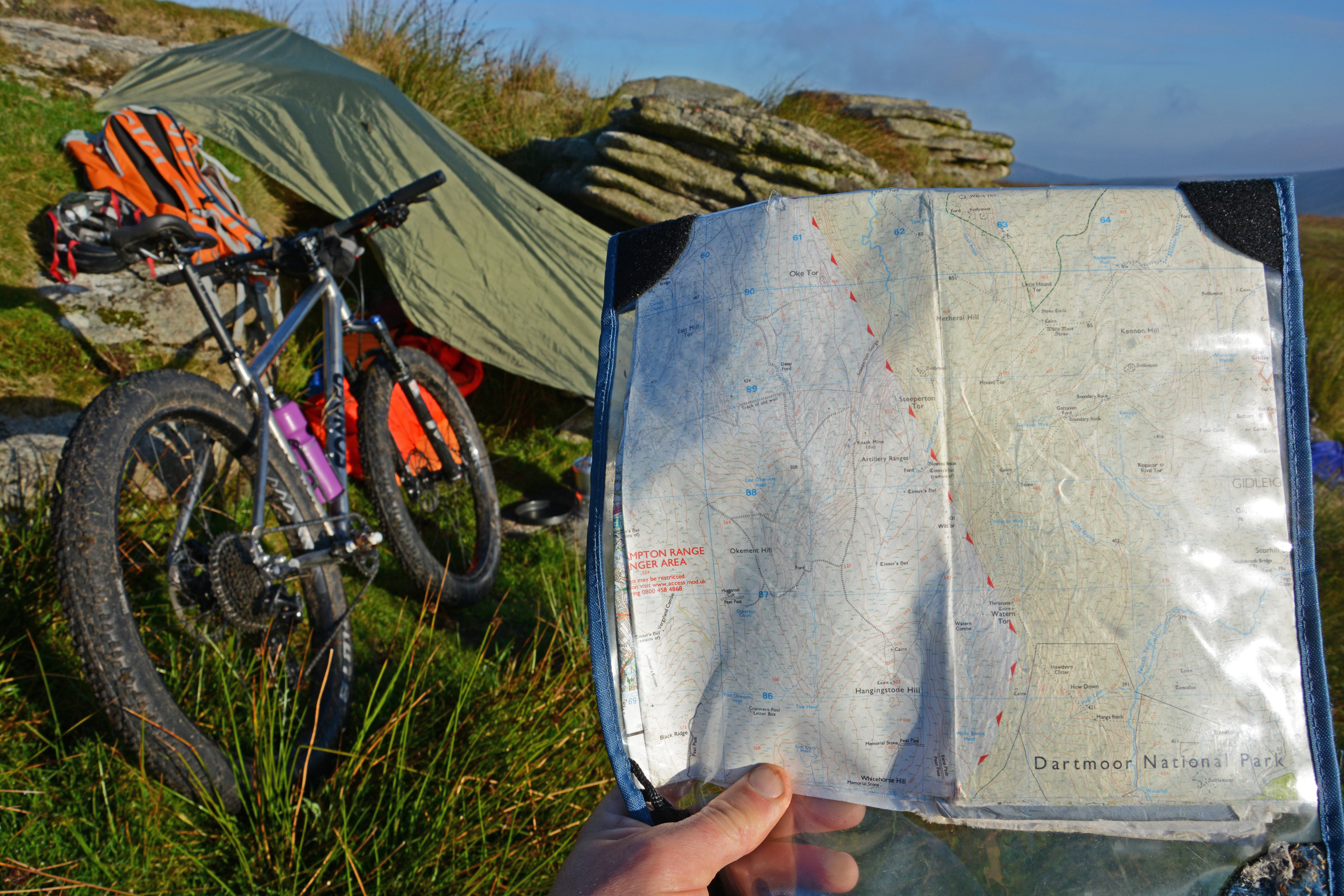
The right to wild camp on Dartmoor makes it fantastic for bikepacking
Darwall - who purchased Blachford Estate on the edge of Dartmoor in 2011 and now rents luxurious accommodation to well-heeled guests, as well as offering pheasant shoots and deer-stalking experiences to visitors – has lodged papers with the High Court asserting that the right of access granted by the Dartmoor Commons Act “does not include a right of wild camping”.
In a statement, Darwall has claimed that he is not trying to end wild camping altogether, but cites concerns over litter and fires to argue that the “need for landowner permission to wild camp is a vital safeguard”.
Dartmoor National Park Authority is opposing the claim in the high court. “The Darwalls may claim they are not against wild camping but people would find it hard to contact and obtain the permission of landowners, who could well turn them down or even charge them for the privilege of staying overnight,” the park’s chief executive, Kevin Bishop, told The Guardian. “The big risk is that this longstanding tradition, which we believe is enshrined as a right in the Dartmoor Commons Act, is lost for ever.”
The National Park says there is no evidence that wild camping has had a negative impact on the environment whatsoever. Not a single fire has been started on Stall Moor because of the actions of campers. By contrast, six out-of-control fires were caused in the last year across Dartmoor by landowners burning back vegetation (a practice known as swaling).
Get all the latest news, reviews, deals and buying guides on gorgeous tech, home and active products from the T3 experts
Bishop pointed out that dangerous disposable barbecues, which have started many fires recently, are far ore likely to be used by day trippers than wild campers, who typically use small, lightweight camping stoves.
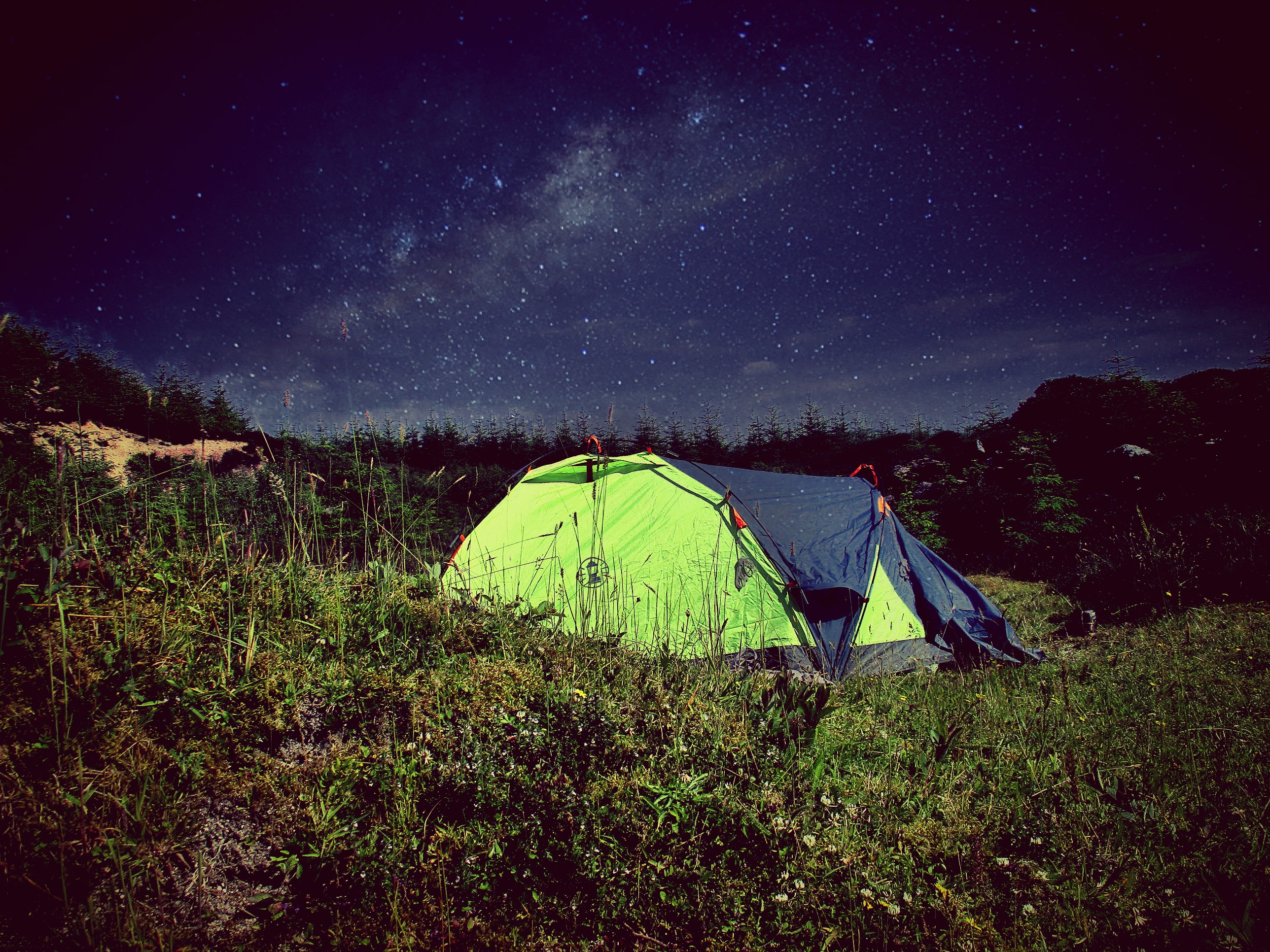
The legal threat to remove the right to wild camp has provoked a furious reaction from outdoor enthusiasts, local youth groups, access campaigners and environmentalists, and recently a group of protesters including author and environmental campaigner Guy Shrubsole staged a camp-out on the grounds of Darwall’s Blachford Estate.
“Dartmoor is precious in England's crowded and nature-depleted land - it is a sliver of wildness for everyone who doesn't live in the highlands of the north,” Adventurer and author Alastair Humphreys told us.
“It is so important for people who don't happen to have inherited huge swathes of land down the generations to be able to enjoy exploring wild places,” “Beyond their individual enjoyment, it has a broader importance of helping more people feel a sense of responsibility, belonging and caring for our land. Until lots of people care about nature, nothing is going to change at government level in terms of addressing the climate and nature crisis.
“Once people feel they have ownership of the land, they will care for it more, and in the long term this will address the short-term issues of all this, such as occasional littering and inappropriate campfire use. If we heed the example of Scandinavia's allemannsretten [‘every man’s right’ to roam freely] you quickly see that these are tiny, short term problems which disappear once people feel they have an invested interest in the land, and learn to care for it.
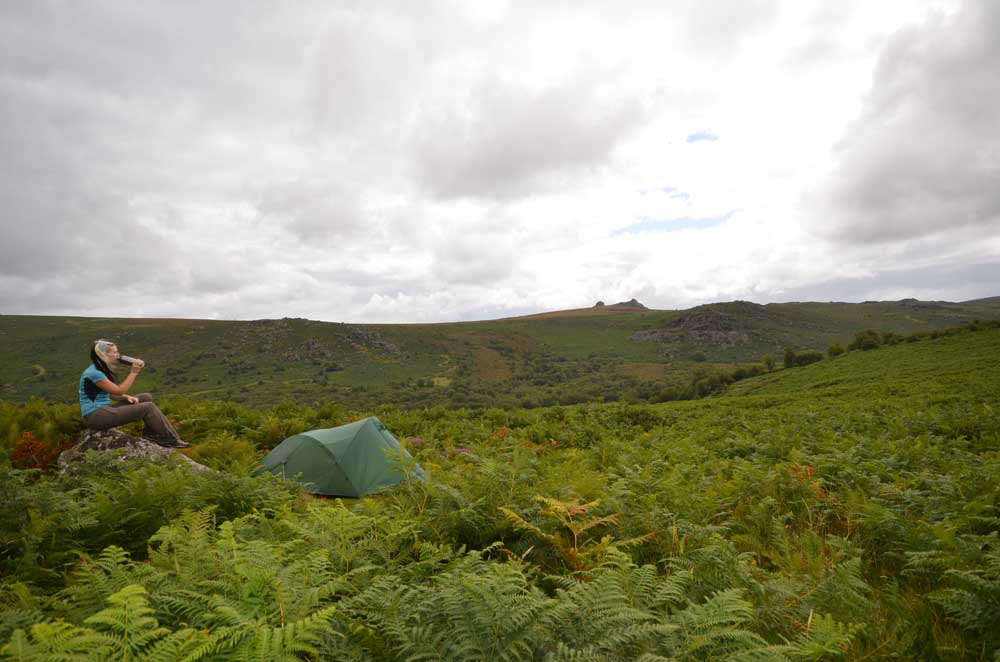
Phoebe Smith wild camping on Dartmoor
Phoebe Smith, adventurer and author of Extreme Sleeps: Adventures of a Wild Camper, told us she is horrified at the prospect of wild camping being effectively made illegal on Dartmoor. “What's appalling here is that the area of land this person has is 3,513 acres - that’s about two times as big as Gatwick Airport or Gibraltor. They knew when they bought it that there was the right to legally wild camp on it… They have already removed parking that the last landowner had allowed.”
The host of the Wander Woman podcast went on to say that the timing of the legal challenge to the right to sleep wild on the moor was cynical, coming when local authorities and national parks are having their budgets squeezed and will find it hard to dedicate resource to fighting such actions. “And what's worse it comes hot on the heels of the Government pushing to re-criminalise trespass in a country where we have the most limited right to roam as is," she added.
“Public land has been sold off more than ever in our history and yet and yet we have shown through countless studies the value of access to green spaces to the public's mental and physical health, which then means less burden on the NHS, and has been proven through the various lockdowns. It should be a right not a privileged to spend the night in the great outdoors without the threat of criminalisation.
Smith believes that, if Darwall is successful, it will result in less people being able to explore Dartmoor, including parents and youth groups who want to teach their children how to behave properly in the outdoors, and the knock on effects would be extremely harmful. “[If wild camping is effectively outlawed] charges will undoubtedly follow for people camping on land - which would rule out participation for those from underprivileged backgrounds and put up more barriers for people getting into nature. It's an abysmal state of affairs.”
Darwall’s claim will be heard in the High Court on 12th December 2022, when protests will be held in London. Follow Right to Roam for updates on this case and information on other access issues.
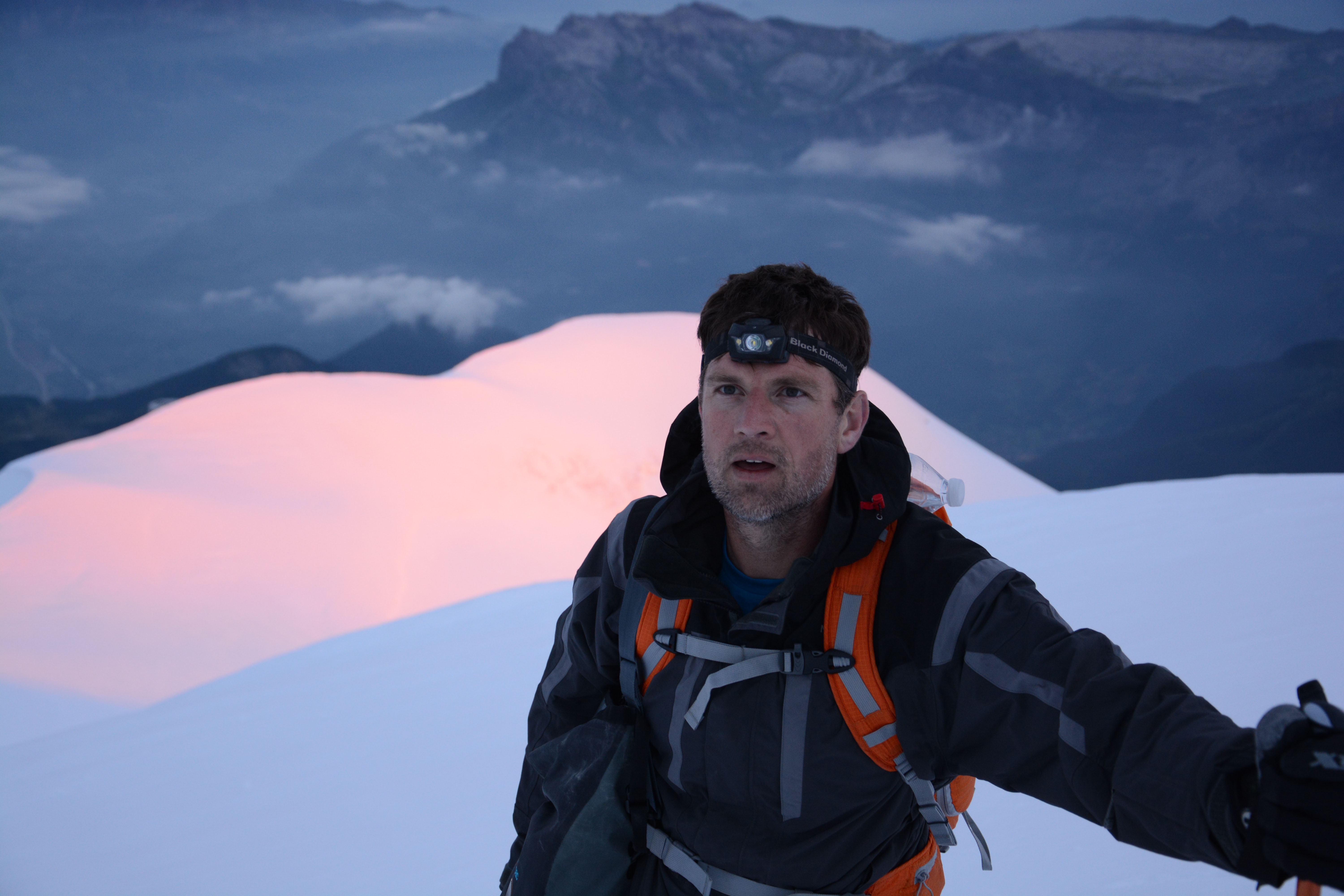
Author of Caving, Canyoning, Coasteering…, a recently released book about all kinds of outdoor adventures around Britain, Pat Kinsella has been writing about outdoor pursuits and adventure sports for two decades. In pursuit of stories he’s canoed Canada’s Yukon River, climbed Mont Blanc and Kilimanjaro, skied and mountain biked across the Norwegian Alps, run ultras across the roof of Mauritius and through the hills of the Himalayas, and set short-lived speed records for trail-running Australia’s highest peaks and New Zealand’s nine Great Walks. A former editor of several Australian magazines he’s a longtime contributor to publications including Sidetracked, Outdoor, National Geographic Traveller, Trail Running, The Great Outdoors, Outdoor Fitness and Adventure Travel, and a regular writer for Lonely Planet (for whom he compiled, edited and co-wrote the Atlas of Adventure, a guide to outdoor pursuits around the globe). He’s authored guides to exploring the coastline and countryside of Devon and Dorset, and recently wrote a book about pub walks. Follow Pat's adventures on Strava and instagram.